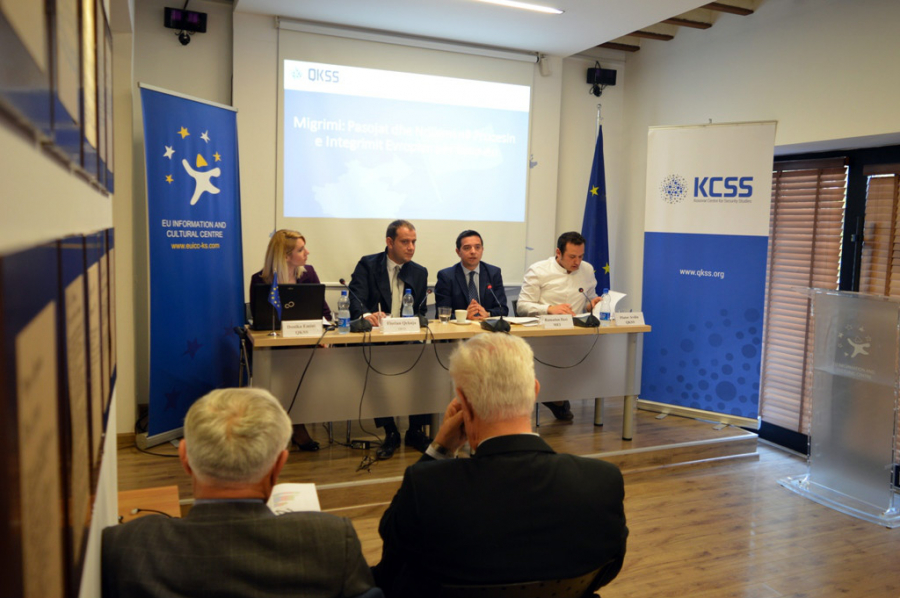21/11/2015

Kosovar Centre for Security Studies (KCSS) on 19th of November 2015, has organized a conference where the latest policy papers has been released on Causes, consequences of irregular migration and the Impact on the integration process for Kosovo, namely the liberalization process Kosovo visa.
According to the KCSS research, socio-economic causes ranked first among factors that have pushed people to migrate to the EU. The country faces a high level of unemployment, especially among young people, where 35.4 percent of the citizens of the active labor force are unemployed, and this is mostly expressed among the younger generations, ie 61 per cent of youth are unemployed .
The second factor implying the massive growth rate of asylum seekers has been the result of criminal networks of smugglers operating in Kosovo and Serbian, that smuggled Kosovo migrants through Serbia towards the EU. Lack of cooperation between Kosovo Police with Serbian Police. During the critical period of mass migration of Kosovars, its pointed out that Serbia's institutions were not willing to cooperate with Kosovo to prevent irregular and illegal migration.
Facing with a massive flow of migration and asylum applications, the Member States of the EU, in particular Germany, Austria and Hungary, said virtually "zero percent" approval rate for Kosovars. The decision on the return of asylum seekers from Kosovo was taken on the basis of the decision that Kosovo is considered a safe country of origin and that citizens can return safely, from a total of 12,780 decisions, ie nearly 99%, or 12,605 were negative. Therefore, the citizens will be deported (mainly voluntary) with sanctions and entry ban throughout the Schengen area. Consequently, the pace of the response to the number of asylum seekers from Kosovo is very fast, so the department has processed about 14,000 cases so far.
At this conference, KCSS has come up with some recommendations for the Government, the Department for Citizenship, Asylum and Migration of the MIA and the European Commission.
For the Government of Kosovo
• There should be joint efforts by the Government and the EU Office in Kosovo to develop a clear strategy for delivering accurate information concerning the rules of entry into the Schengen area, and the responsibilities of visa free regime.
• The national government should fokuc on economic reforms to reduce unemployment and creating new jobs.
Department for Citizenship, Asylum and Migration MIA
• Increasing technical and human capacities for effective management and monitoring of the readmission process, improve cooperation and coordination on readmission between different authorities. This will ensure effective response to requests for readmission of all Member States of the EU.
European Commission
• Free visa regime will provide a way to exit from irregular migration. Concentration of irregular migration is shifting away attention from the benefits that citizens - mostly skilled workers and turists - will enjoy visa-free event.
• The possibilities of legal migration towards the EU states. Government of Kosovo should cooperate with international organizations, especially the programs led by the countries of the EU as GIZ - DIMAK, actively involved in finding remedies to those who intend to work in the Schengen area of the EU, mainly in seasonal basis. Legal migration options represent the best alternative to irregular migration. Seasonal employment programs can be a solution for employment who desperately needed for Kosovo.